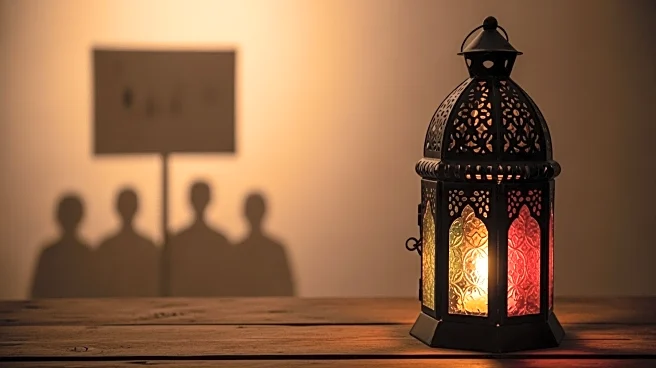What's Happening?
In Morocco, government-written sermons were delivered across mosques urging parents to involve their children in public affairs. This follows a wave of youth protests demanding better social and economic conditions. The sermons, while not directly addressing
the protests, are seen as a government effort to encourage civic engagement among the youth. The protests, organized by Gen Z 212, were sparked by dissatisfaction with government spending priorities, particularly in sports infrastructure for the 2030 World Cup.
Why It's Important?
The sermons represent a strategic move by the Moroccan government to address youth discontent and promote civic participation. By encouraging involvement in public affairs, the government aims to channel the energy of the protests into constructive dialogue and engagement. This approach could potentially lead to increased political participation among young people, influencing future policy decisions and fostering a more active civil society.
What's Next?
The Moroccan government has announced measures to boost youth political participation, including simplifying election candidacy requirements and providing financial support for campaign fees. These initiatives, coupled with increased budget allocations for health and education, aim to address the grievances of the youth and improve public services. The effectiveness of these measures in quelling protests and fostering engagement remains to be seen.
Beyond the Headlines
The use of sermons to influence public opinion highlights the intersection of religion and politics in Morocco. This approach raises questions about the role of religious institutions in political discourse and the potential for sermons to be used as tools for state propaganda. The long-term impact on youth engagement and the balance between religious influence and political autonomy will be important areas to watch.















